Collaboration Arrangement between the Department of Health and Aged Care and Health Technology Assessment bodies in the United Kingdom and Canada
Page last updated: 5 September 2022
The Department of Health and Aged Care has signed an international collaboration arrangement with five like-minded health technology assessment bodies. Health technology assessment is a range of processes and mechanisms based on scientific evidence to assess the comparative quality, safety, efficacy, effectiveness and cost-effectiveness of health technologies (ie medicine, medical service or prosthesis). The collaboration arrangement sets out a framework to support shared strategic objectives in several priority areas.
The signatories to the arrangement, who will continue to remain independent of one another, are:
- Australian Government Department of Health and Aged Care
- National Institute for Health and Care Excellence (NICE)
- Canadian Agency for Drugs and Technologies in Health (CADTH)
- Healthcare Improvement Scotland
- Health Technology Wales
- All Wales Therapeutics & Toxicology Centre
This agreement will allow the partners to work together on shared priorities to identify solutions to some of the common challenges they face. Five initial priority areas have been agreed. These are:
- COVID 19
Partners will share information about their work in COVID 19 how they are working with regulators, the prioritisation of topics, management of medicines with no marketing authorisation, planning for HTAs, and approaches to economic modelling. - Future-proofing of HTA systems
Partners will exchange ideas on how HTA processes could better anticipate technological and methodological challenges before they become issues for HTA and work together on scientific and methodological topics to address challenges. - Collaborating with regulators
Partners will explore implementing joint approaches to engaging with the regulatory agencies in the UK, Canada, and Australia to identify and progress opportunities to improve HTA and regulatory collaboration. - Work-sharing and efficiency gains
Partners will explore the feasibility of recognising or using each other’s HTA information and explore running a pilot for a joint clinical assessment. - Digital and Artificial Intelligence
Partners will share information about developments in the evaluation of digital health technologies, including technologies that involve artificial intelligence.
Working groups, aligned to the priority areas, will meet quarterly to review progress and discuss activities in their area. An annual meeting of all partner organisations will be held to review all activities and to realign where appropriate the developing areas of collaboration.
The partnership could be expanded to include other HTA bodies in the future, subject to the agreement of existing members, with the signed agreement reviewed after two years.




